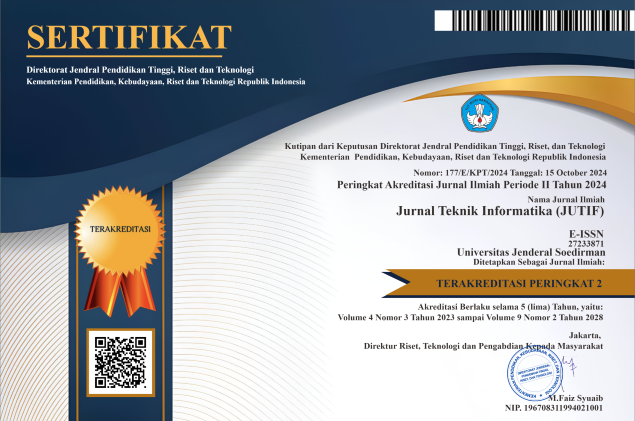Plagiarism Policy
"PLAGIARISM" can occur in two forms: 1) author(s) intentionally copy someone elses work and claim it as their own, or 2) author(s) copy her or his own previously published material either in full or in part, without providing appropriate references - also called as "self-plagiarism" or "duplicate publication".
Plagiarism before publication
The Jurnal Teknik Informatika (JUTIF) will judge any case of plagiarism on its own merits. If plagiarism is detected, either by the editors, peer reviewers or editorial staff at any stage before publication of a manuscript - before or after acceptance, during editing or at page proof stage, we will alert the author(s), asking her or him to either rewrite the text or quote the text exactly and to cite the original source. If the plagiarism is extensive- that is, if at least 20% of the original submission is plagiarized - the article may be rejected and the author's institution/employer notified.
When is plagiarism check done?
Every manuscript submitted for publication to any journal published by Jurnal Teknik Informatika (JUTIF) is checked for plagiarism after submission with Turnitin Software and after being sent to an editor for editorial review.
How is plagiarism check done?
Jurnal Teknik Informatika (JUTIF) uses Turnitin Software to detect instances of overlapping and similar text in submitted manuscripts. Turnitin is an entirely browser-based web service that verifies the authenticity of documents.
Plagiarism
It may happen that the manuscript is not freely accessible to article indexing services due to restrictions by programmers, journals or publishers; or it is available on the journal website but not yet indexed by article indexing services. In such cases when plagiarism check is done the content of the manuscript being checked can not be compared to the original manuscript due to restrictions and plagiarism will not be detected.


























